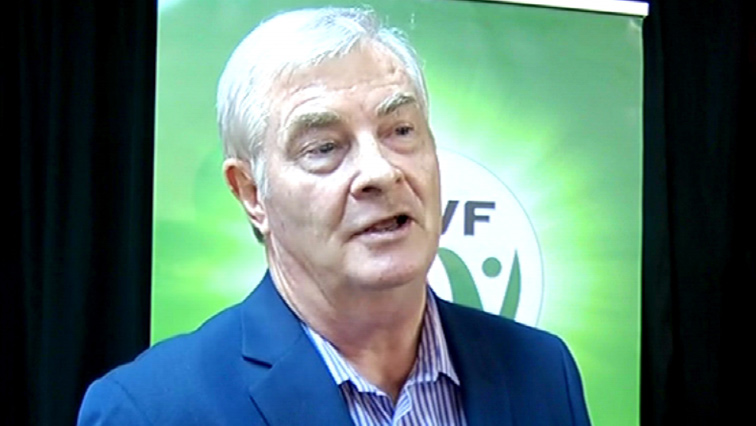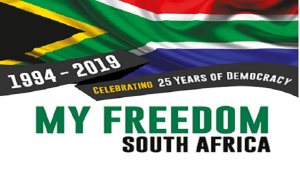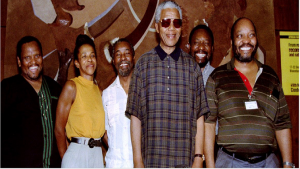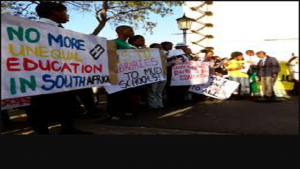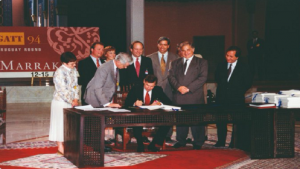This week we focus on the history of the Freedom Front Plus (FF+), a minority Afrikaner party that shook South Africa’s political landscape during the May 8 elections.
The party, initially the Freedom Front, was established just weeks before South Africa’s historic 1994 polls.
General Constand Viljoen and former Konserwatiewe Party (Conservative Party) leader Ferdi Hartzenberg were its founders.
Hartzenberg joined forces with Viljoen after he left the Afrikaner Volksfront (AVF) amidst disagreements over the seizing of an Afrikaner state (Volkstaat) through civil disobedience and resistance.
While he was initially meant to lead the revolution, the former chief of the apartheid army said he had changed his mind due to concern over the repercussions of war.
He dropped the bombshell on his Afrikaner Volksfront comrades following talks with the National Party (NP) and the African National Congress (ANC).
Viljoen’s party won 2.2% of the votes, securing nine seats in the National Legislature.
Watch related video:
The Freedom Front Plus also clinched a deal with the ANC about the formation of a Volkstaat Council, which was established after the elections.
It was dissolved in 1999 after finalising its report.
The Council probed the idea of the creation of a White Afrikaner homeland.
Viljoen led the FF+ until 2001 and was succeeded by Pieter Mulder.
After years of dismal performance in the country’s polls, the party gained significant support in this year’s elections from former Democratic Alliance (DA) supporters who are said to be worried about their culture and identity. They believe their heritage is under threat.
The Freedom Front Plus garnered 2.38% of the votes, bringing its number of Members of Parliament to 10.
It is now the fifth biggest party in Parliament and is led by Pieter Groenewald.
Watch related videos:
Blow to Afrikaner’s self-determination plans
Viljoen’s decision to contest the 1994 elections was the beginning of an end for the AVF, an umbrella body for at least 21 Afrikaner self-determination organisations.
Another major blow to their plans came five days after Viljoen’s about-turn when the Afrikaner’s effort to bolster Bophuthatswana leader Lucas Mangope’s bid to retain power failed.
Viljoen, former apartheid Chief of Military Intelligence General Koos Bischoff and the ex Head of the Criminal Investigation Department General Kobus Visser were some of the AVF’s founding members.
Hartzenberg was the chairperson of the AVF’s executive council when he broke ranks.
The group’s formation had been preceded by the inauguration of the Volksverteenwoordigende Rand, which the coalition referred to as the Parliament of the nation.
The authority was to counter the work of the Transitional Executive Council (TEC) tasked with creating a climate for free political activity ahead of the April elections.
The unbanning of anti-apartheid movements and Nelson Mandela’s release from jail, the National Party’s decision to enter into transition negotiations with the ANC and the 1992 referendum, which ushered in a new Constitution that paved the way for the creation of a non-racial society raised their ire of the right-wing Afrikaners.
Watch related video:
AVF plans
According to Volkstaat.net, the right-wing coalition was preparing an army that would fight for town councils in the west of Gauteng (then Transvaal) that were under the Conservative Party’s control prior to the 1994 elections.
This included seizing their assets and finances.
The plan was, however, thwarted by the National Party government who declared a State of Emergency in April, ahead of the non-racial polls.
The Afrikaner right-wing group was in alliance with conservative Black leaders, including those of the Inkatha Freedom Party (IFP), which decided to participate in the 1994 landmark elections at the last minute.
The AVF’s executive council was dissolved in 1996.


